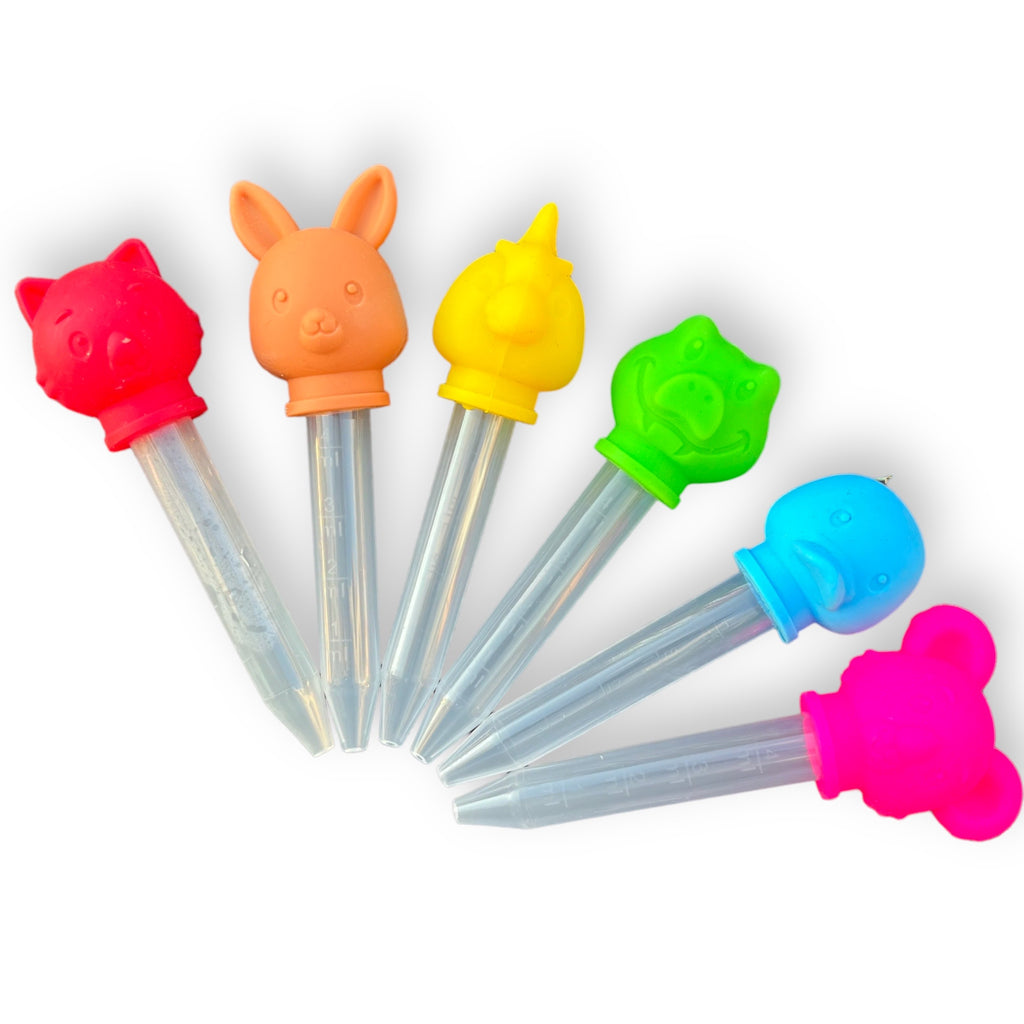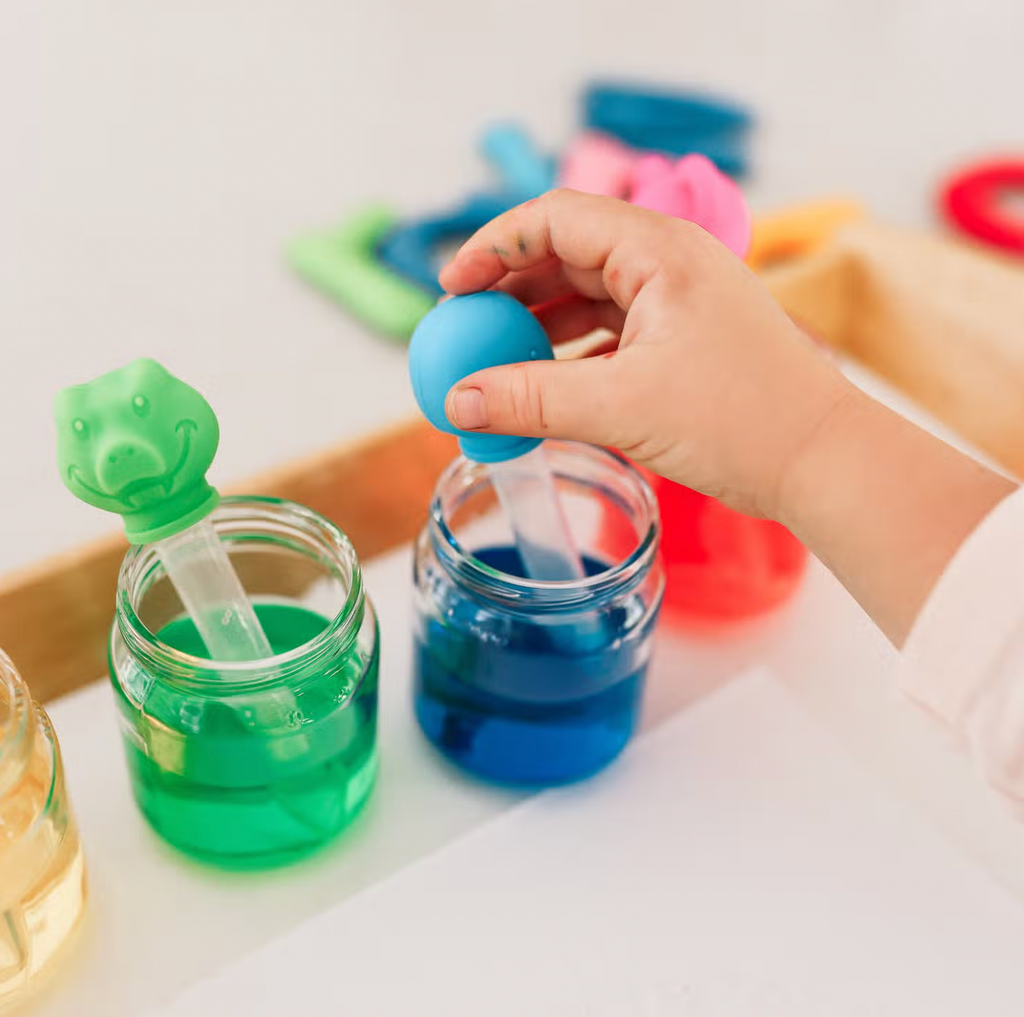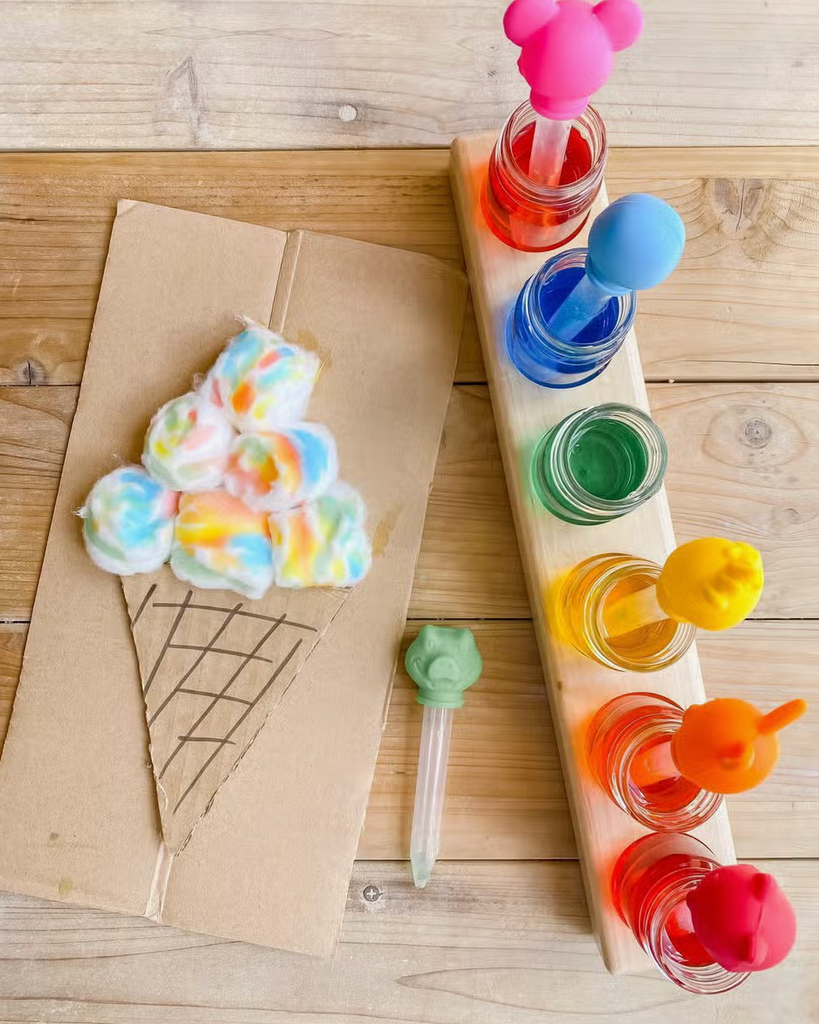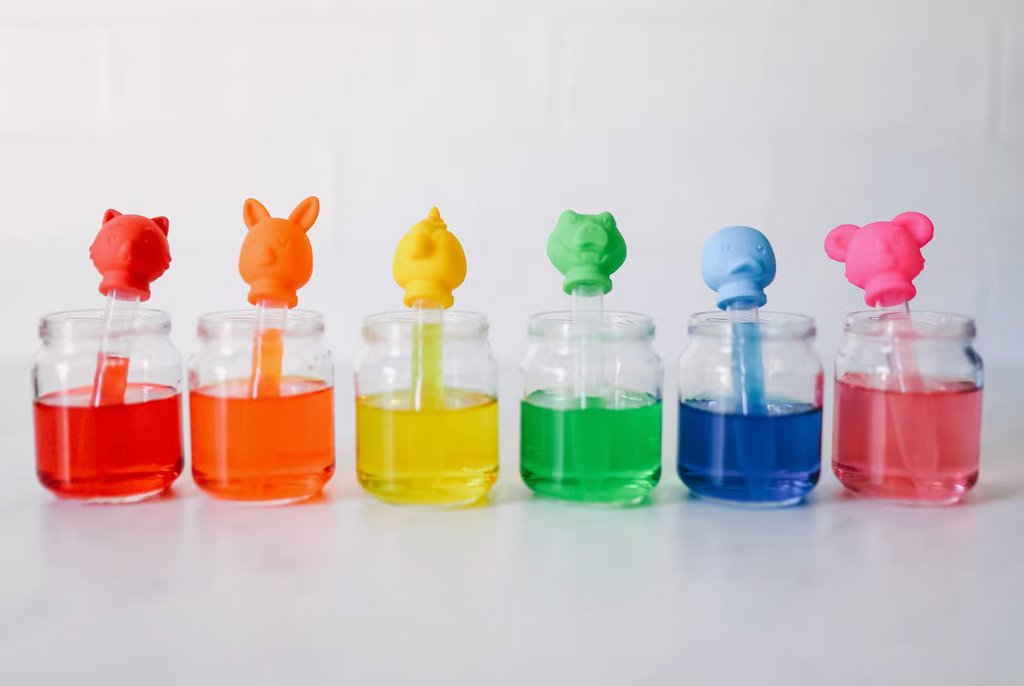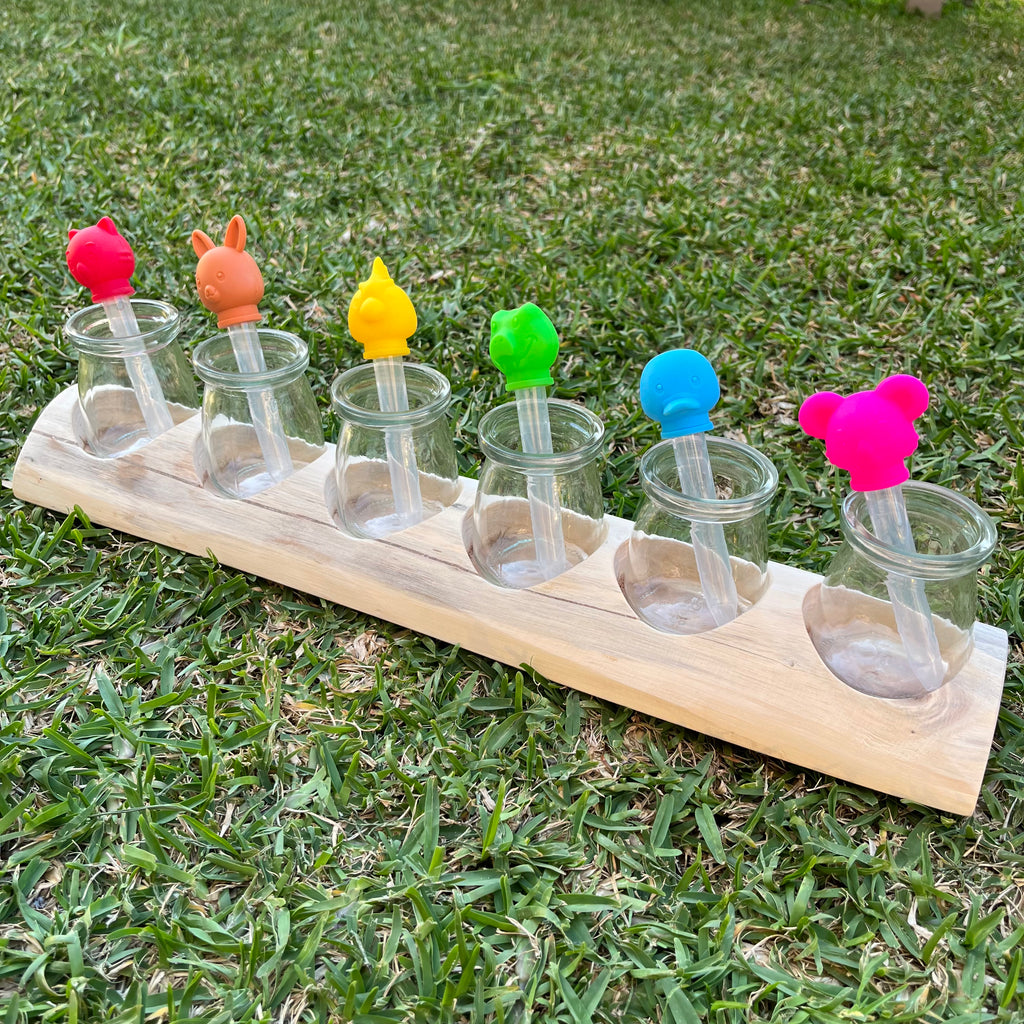Aussie Animal Craft Droppers
Parents and educators alike are often extremely eager to assist young children with the development of fine motor control. This is particularly true because of the impact of fine motor control on the development of writing skills. The use of a pipette or water dropper is an ideal pre-writing exercise. The child's grasp on the bulb helps to develop strength, control and coordination in the hands and fingers.
With this gorgeous set, your child's interest is piqued by the presence of six friendly Australian animals - a cockatoo, wombat, kangaroo, crocodile, platypus and koala! These colourful characters add a sense of delight, and also elevate the possibilities for creative and artistic play as your little learner may incorporate colour into their craft projects.
Made from soft and colourful silicone, these 6 animal themed squeezable droppers are perfect for building fine motor skills with hands on colour mixing activities, simple STEAM experiments or good old fashioned water play at home.
Our Aussie Animal Craft Droppers are the perfect fit for our Wooden Paint Pot Holder, as shown below and in some of our example videos.

Please remember this is a set of six, with the droppers not sold separately. If you're looking for a single pipette, please see our Twisty Droppers.
As well as art projects and science experiments, these pipettes can be used during real Practical Life tasks - such as for watering indoor plants. Using a pipette to water the plants limits the amount of water and allows the child to nourish the plant while avoiding spills or floods!
They can also be used to make the 'Practical Life Exercises' that are presented on trays in many Montessori classrooms and homes. The use of trays helps to catch spills - limiting mess while allowing for self-correction - and help to define the procedure and purpose of the task.
Baster activities can take many forms so that they are staggered in difficulty; from an introductory level through to more advanced exercises. A suggested progression could include;
- Early exploration: the child begins engaging with 'grasping' the bulb to suck and then squirt the liquid. This can happen simply in an open container such as a sink or bucket. This is particularly appropriate and engaging for toddlers.
- Basic transferring: the child uses the baster to transfer liquid from one open vessel to another. This activity allows the child to focus solely on mastering the use of the pipette itself.
- Measured transferring: the child uses the baster to transfer liquid from one vessel to a predetermined line on another vessel (for instance, a line drawn onto a small jug or to a certain measurement on a measuring jug).
- Advanced transferring: the child uses the baster to transfer small measurements of liquid into predetermined sections of a container, such as the spaces in an ice cube tray or the containers of an ice block mould.

An example of the progression of difficulty using one of our other Basters.
Please remember:
Many Montessori classrooms and homes feature "Practical Life Trays" or "Fine Motor Trays" that host activities designed to isolate the presentation of a specific tool or task; such as spooning or using tweezers. These are slightly different from the traditional Practical Life activities, in that they are isolated exercises not connected to a longer process working towards a real outcome, but most Montessori advocates agree that these "Practical Life Trays" have a place in assisting the development of fine motor control and concentration.
Ideally any Practical Life experience should be real, purposeful and should follow a complete a cycle of setting-up, activity and packing-up. Fine motor trays are a useful way of isolating a specific skill if you are introducing it for the first time or if a child appears to need refinement or remedial practise. However, a shelf of trays would not be indicative of a comprehensive or complete "Practical Life" curriculum. These isolated exercises need to be utilised in broader contexts that are relevant to the child's daily routines. Wherever possible please try to engage the child - whether in the home or in the classroom - in real, purposeful work that follows a complete cycle. Don't just present a spooning tray; ensure that the child is able to use a measuring spoon to gather ingredients in a recipe. Don't just provide two jugs to pour liquid back and forth; allow the child to pour his or her own drinks when thirsty. Don't just offer a sponging exercise; ensure that the child has access to sponges and the opportunity to actually clean up real spills. Incorporating these isolated elements into a prolonged and purposeful experience is the ideal way of achieving the goals and outcomes of true Practical Life work.

